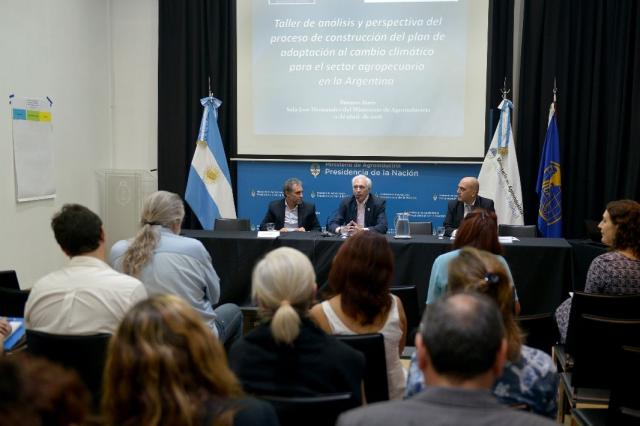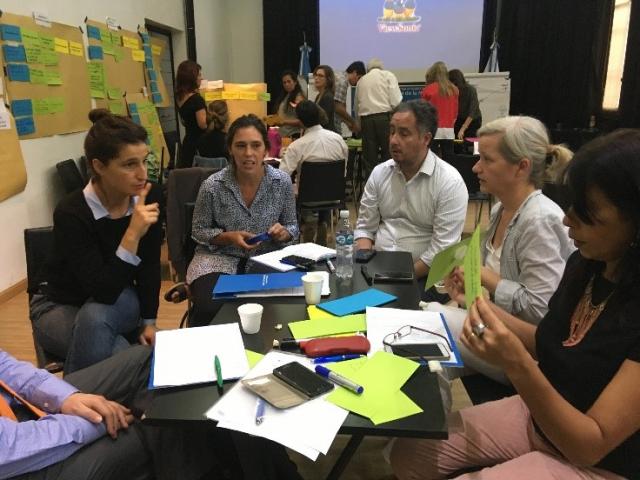Over 35 representatives from different institutions, including MINAGRO, MAyDS, FAO, CIMA, INTA, and the Ministry of External Relations, participated and ensured a wide range of perspectives.

How the agriculture sector should respond to existing and emerging climate risks was the topic of a two-day event organized by the Agroindustry Ministry of Argentina and IICA in mid-April 2018, at the Ministry’s headquarters in Buenos Aires. Emphasizing the urgency of the task and the need for inter-sectoral collaboration, Guillermo Bernaudo, Secretary of Agriculture, Livestock, and Fishing, Carlos Gentile, Secretary of Environment and Sustainable Development, and Federico Ganduglia, IICA’s acting representative, opened the event and set the framework for action.
With the goal of developing the country’s sectoral climate change adaptation plan by the end of the year, this workshop was held to define the road map in a participatory manner. Over 35 representatives from different institutions, including MINAGRO, MAyDS, FAO, CIMA, INTA, and the Ministry of External Relations, participated and ensured a wide range of perspectives.

A series of presentations brought everyone up to date on the national and sectoral adaptation and mitigation planning processes currently underway in the country, and some of the lessons learned from similar processes in other countries. The way forward in Argentina, from climate risk analysis, to prioritization of adaptation measures and the structure and content an actionable plan was also discussed during the workshop. The result was a road map to guide the process through December, as well as ideas for continuing to refine and improve the plan over a longer period with appropriate mechanisms for consultations, communication and validation.
To see a short video (in Spanish) regarding the event, click here.
For more information: Kelly Witkowski, Agriculture and Climate Change Specialist at IICA kelly.witkowski@iica.int
*The opinions expressed in this newsletter are those of the authors and they do not reflect the position of the Institute on the topics presented.
*This post appears in the IICA Delegation in the USA Newsletter – March – April 2018











